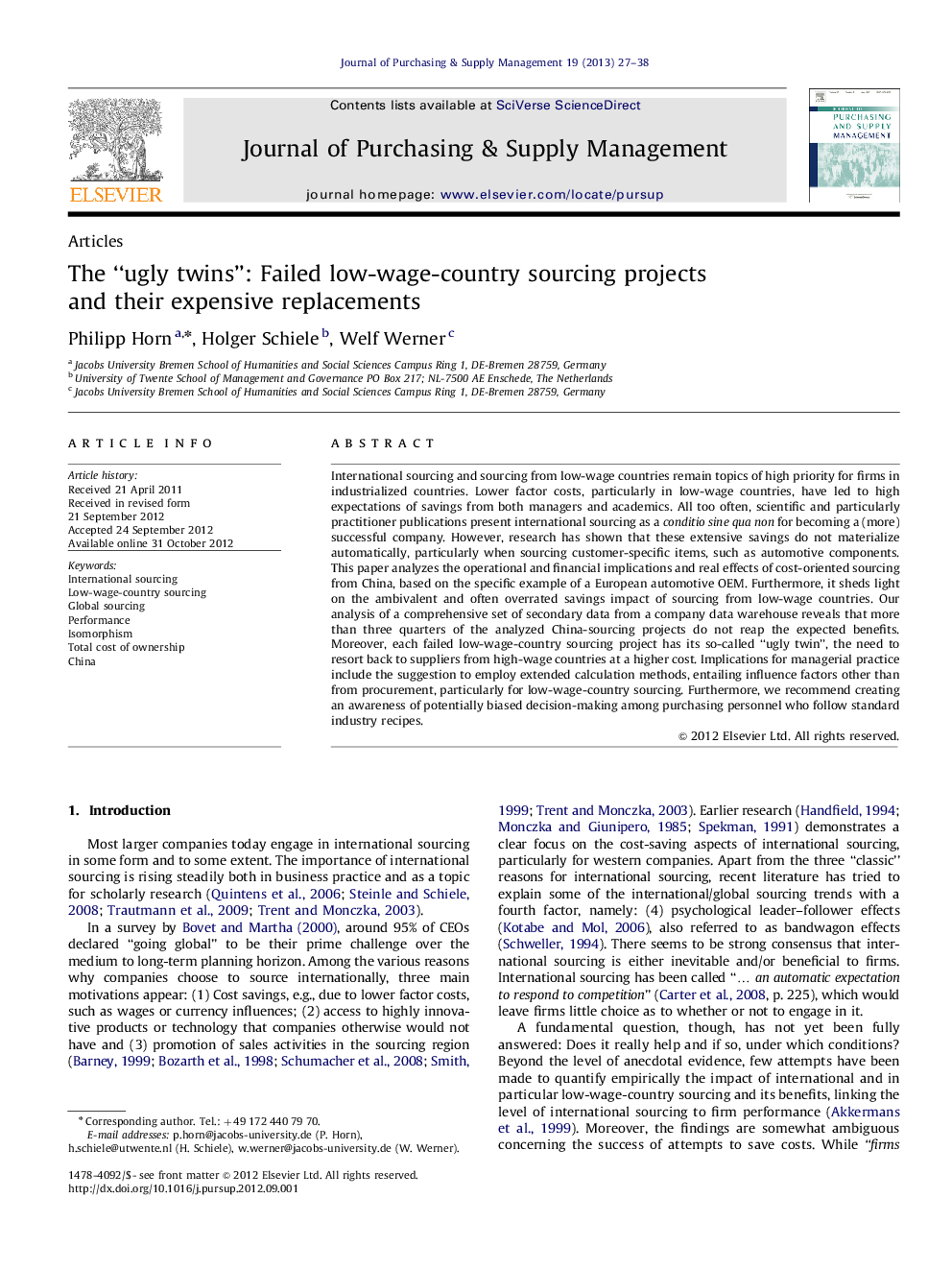| Article ID | Journal | Published Year | Pages | File Type |
|---|---|---|---|---|
| 1020783 | Journal of Purchasing and Supply Management | 2013 | 12 Pages |
International sourcing and sourcing from low-wage countries remain topics of high priority for firms in industrialized countries. Lower factor costs, particularly in low-wage countries, have led to high expectations of savings from both managers and academics. All too often, scientific and particularly practitioner publications present international sourcing as a conditio sine qua non for becoming a (more) successful company. However, research has shown that these extensive savings do not materialize automatically, particularly when sourcing customer-specific items, such as automotive components. This paper analyzes the operational and financial implications and real effects of cost-oriented sourcing from China, based on the specific example of a European automotive OEM. Furthermore, it sheds light on the ambivalent and often overrated savings impact of sourcing from low-wage countries. Our analysis of a comprehensive set of secondary data from a company data warehouse reveals that more than three quarters of the analyzed China-sourcing projects do not reap the expected benefits. Moreover, each failed low-wage-country sourcing project has its so-called “ugly twin”, the need to resort back to suppliers from high-wage countries at a higher cost. Implications for managerial practice include the suggestion to employ extended calculation methods, entailing influence factors other than from procurement, particularly for low-wage-country sourcing. Furthermore, we recommend creating an awareness of potentially biased decision-making among purchasing personnel who follow standard industry recipes.
► The study sheds light on the impact of China sourcing on an automotive OEM in a high-wage country. ► Findings are based on secondary data from the OEM’s data warehouse for three consecutive years. ► More than three quarters of China sourcing projects do not reap the expected results. ► Financial and operational performance correlate negatively, possibly owing to an industry recipe. ► Replacements for failed China sourcing projects from existing suppliers induce high costs.
